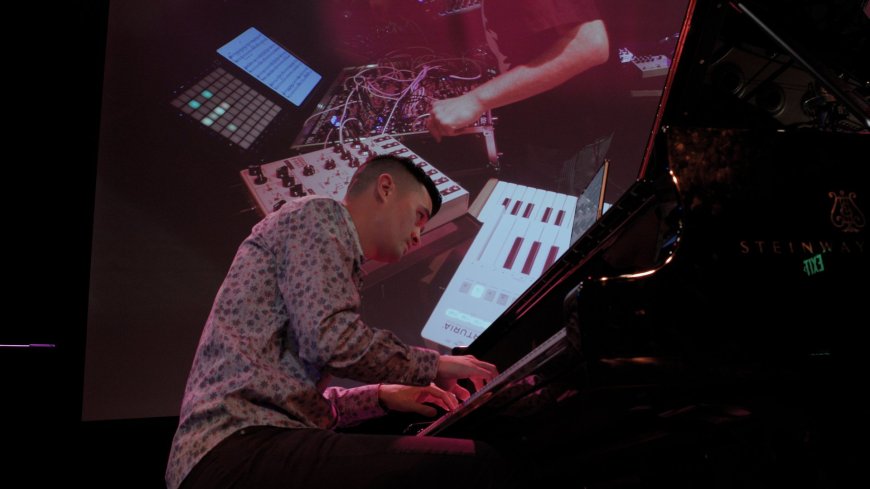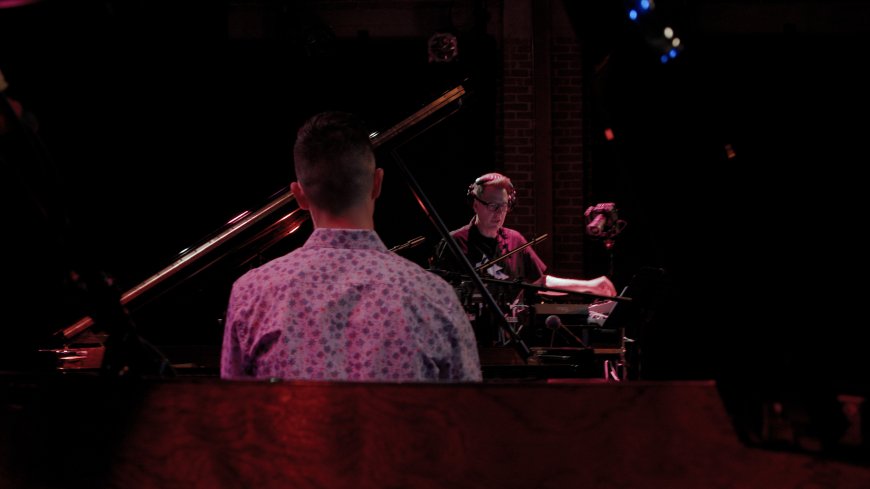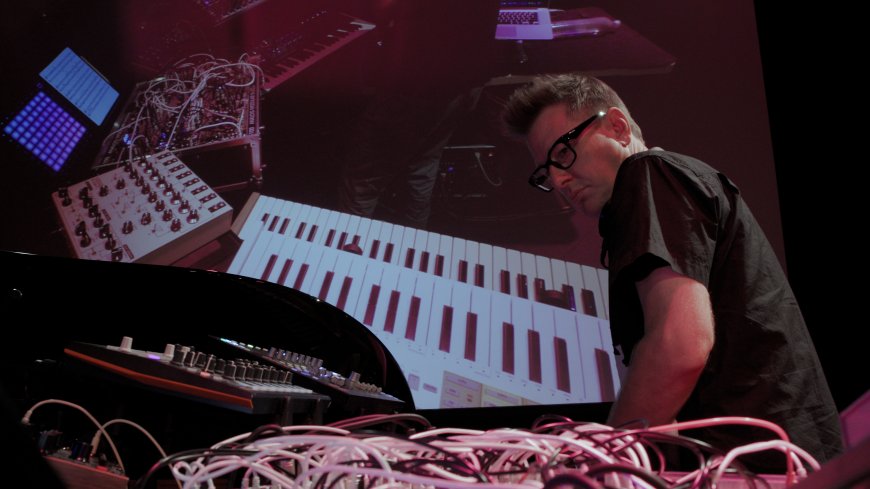
At Piano Spheres, the audience was on its feet by the end of a concert and album release for Thomas Kotcheff’s Between Systems — proof that experimental music can be both exhilarating and welcoming. The ovation on Sept. 16 was not for perfection, but for risk. Kotcheff, the composer and pianist, reminded us that interpretation thrives not on technical certainty, but on imaginative daring.
The evening featured works from Kotcheff’s new album, in addition to works by Cher, Céline Dion, and Beyoncé, among others. The question of interpretation hovered over the evening. What does it mean to “play” a piece of music? Is it an act of reproduction, or can it be transformation?
Kotcheff answered by treating the scores he played as living texts — partners in dialogue with pop culture, electronics, hyper-saturated video, and even humor. His performance felt more like an act of emergent authorship than of fixed fidelity. The result was an evening that could feel at once like a contemporary art installation, a jazz club, and a pop remix — sometimes all within a single piece.
The concert opened with a collision between Cher’s Believe and György Ligeti’s Musica Ricercata No. 1. Here, the piano’s stubborn single pitch sparred with a recording of Cher’s pitch-shifted vocals, gradually accelerating until the two fused in manic unity. It was playful, immediate, and delightfully intertextual — a microcosm of the concert’s ethos.

Later, Kotcheff and electronic artist Bryan Curt Kostors reimagined Morton Feldman’s Nature Pieces with synth processing that echoed, reversed, and re-pitched the piano in real-time. With this addition, Feldman’s typically austere language took on an unexpected warmth and sense of unity, even Bach-like harmonic clarity. Where Feldman is usually rendered with monkish restraint, Kotcheff’s approach was surprisingly raucous, and all the more effective for it.
That bent rendition of Feldman opened the door to a seamless arc that braided Squarepusher’s Tommib, Aphex Twin’s aisatsana, and two of Feldman’s Intermissions. Performed without pause, the sequence was a meditation on repetition and stasis. Gentle arpeggios floated over chirping synth pads, punctuated by sudden dissonant chords and static noise. At times serene, at times anxious, the whole thing felt ephemeral, like watching 8mm home movies slowly flicker into disrepair. Here, interpretation became a study in texture, time, and impermanence.
The evening took a darker turn with Obbligato Snare Drum Music No. 1: The Power of Love, where Kotcheff joined percussionist Michael Compitello to add to, and dismantle, a Céline Dion anthem. The familiar melody surfaced only to be fractured by glitchy edits, pounding snare gestures, and jarring piano attacks. The music took on the eerie quality of a haunted jukebox, where beloved songs sputter and skip until their meaning slips away. Nostalgia became fragmented, almost erased. If earlier pieces invited us in, this one unsettled us, balancing satire with more than a hint of menace.

That tension gave way to mourning in Sophie Mathieu’s the voice that fades — a world premiere Kotcheff described as “nature’s dying song.” The work’s inside-piano strums and resonant-yet-delicate melodies conjured a chant-like meditation on loss that never lost its sense of purpose.
The finale lifted the roof: Beyoncé’s “Love on Top” was reframed as a grand passacaglia. Each key change pushed higher and higher, until voices pitched themselves into absurd stratospheres, accompanied by glitch-psychedelic video art by Allison Tanenhaus. It was manic, joyful, and knowingly excessive — a celebration both sincere and laced with irony.
Kotcheff shaped the program with expert dramaturgy: a thrilling opener, reflective middle, disorienting rupture, a moment of mourning, then a cathartic close. He obviously had the time of his life at the piano, and the audience responded in kind — cheering, applauding, shouting encouragement mid-song, treating Feldman and Beyoncé alike as occasions for joy.
Between Systems proves experiment can be welcoming, risky, uncanny, even funny. Kotcheff and his collaborators made interpretation an experiment we all got to witness, and share in.




